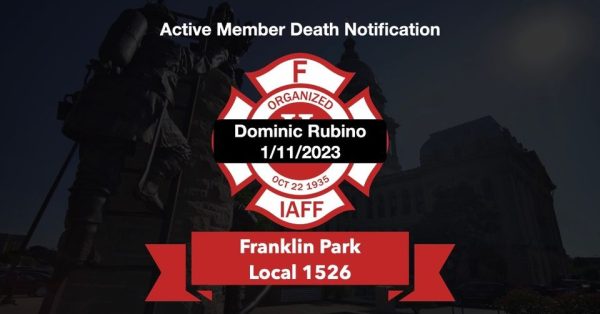
From Associated Fire Fighters of Illinois
It is with great sadness that the AFFI announces the death of Firefighter Dominic Rubino of Franklin Park, Local 1526. Brother Rubino passed away unexpectedly on Wednesday, January 11th, 2023.Although this is NOT an activation, Brother Rubino’s family and Local have requested Honor Guard attendance at his services. His services are as follows:
- Visitation: Monday, January 16th, 2023, from 1500hrs to 1900hrs at Cumberland Chapels- 8300 N. Lawrence Ave., Norridge, IL 60706.
- There will be a Fire Department walk through at 1800hrs. Honor Guard members should arrive no later than 1730hrs.
- Prayers and Final Viewing: Tuesday, January 17, 2023, at 0900hrs at Cumberland Chapels- 8300 N. Lawrence Ave., Norridge, IL 60706.
- Funeral Mass: Tuesday, January 17th, 2023, at 1000hrs at Queen of Peace Church (St. Eugene Church)- 7958 W. Foster, Chicago, IL 60656.
- Interment: Tuesday, January 17th, 2023, immediately following the Funeral Mass at Queen of Heaven Cemetery- 1400 S. Wolf Rd., Hillside, IL 60162.





























